Why every woman needs a first date uniform in her wardrobe
...probably because it promises less wardrobe panic and more room for real connection.

You know the drill: it’s two hours before a first date, your wardrobe looks like a crime scene, and somehow nothing feels right. The little black dress feels too formal, the flirty skirt suddenly looks try-hard, and your favourite jeans? Way too basic. You try on five different tops, fling two onto the bed, and still end up questioning whether you’re going for “mysterious and chic” or “girl-next-door.” By the time you’ve stood in front of the mirror for the tenth time, makeup half-done and hair in limbo, the whole thing feels less like date prep and more like a full-blown identity crisis. Which is why so many women are skipping the chaos altogether and embracing the idea of a “first date uniform”—a go-to outfit that always works.
Think of the first date uniform as the little black book of dating style; it's reliable, sleek, and surprisingly powerful.
Dr Mansi Talwar, founder and chief coach of the leadership and life coaching platform Happy Mee, calls it “a mental shortcut—what psychologists call decision fatigue reduction.” When the outfit is a given, she explains, you can redirect your mental energy toward what matters more: “actually enjoying the date.”
In an era where first impressions are often curated with Instagram-level precision, the uniform offers a paradoxical promise: by controlling one detail, you may appear—and feel—more authentic.
Appearance vs rejection anxiety
Most first-date jitters are a blend of the visible and invisible. “Anxiety is a cocktail,” Talwar notes. “Appearance worries are the visible tip of the iceberg, but underneath lies the fear of ‘Will they like me?’” While no outfit can erase that fear, a well-chosen one can soften it. “When you know your outfit works for you, you remove one major trigger, which calms the body and helps regulate emotions.”
Some critics argue that a first date uniform reinforces superficiality, prioritising image over vulnerability. Talwar pushes back. “Dressing well doesn’t make you fake; it makes you comfortable enough to be real,” she says. Think of it, she suggests, “like your emotional safety blanket—it calms the ‘Do I look okay?’ voice so your authentic personality can show up.”
The risk comes when the uniform is mistaken for the whole performance. “The real spark happens when your humour, quirks, and curiosity take centre stage,” she adds.
The stylists’ take
Celebrity fashion stylist Hemlataa Pariwal believes the conversation begins with self-acceptance. “The first rule for a date is to be comfortable with yourself,” she says. “If you’re not at ease in your own skin, you can’t expect anyone else to feel comfortable around you. Know your body—your height, your size—and embrace it without shame.”
Comfort, she adds, should be balanced with context. “Pick neutral or pastel shades, avoid jarring pops of color, and dress for the activity—a coffee date, a movie, or a dinner. The mistake I see most often is people showing up either underdressed or overdressed.”
Her mantra is simple: be a slightly elevated version of yourself. “It’s not a business meeting, and it’s not a club night,” she says. “Ask yourself: if I were a better version of myself, how would I show up? That’s what the other person will read about you through your appearance.”
Pariwal warns against chasing approval or trends. “If something makes you uncomfortable, don’t attempt it. And don’t dress to please someone else. Social media is full of products and trends telling you how you ‘should’ look, but Instagram doesn’t know who you are. Too many women end up looking like Pinterest boards rather than themselves.”
The stylist sees overcompensation as another common pitfall. “A lot of women, especially those dating through apps, feel pressured and end up dressing too much to impress—like they’re going clubbing, when in reality it’s just a casual dinner. That doesn’t work. Instead, aim to be one step above your everyday self. If you’re usually a five out of ten in your own rating, go for a six or seven. That’s enough.”
Accessories, she suggests, are an easy way to elevate a uniform. “Minimalist jewellery, the right bag, or a change of shoes can transform a look. It’s not about owning ten luxury handbags—it’s about rotating the right accessories for the right moment.”
Pariwal also encourages reimagining familiar outfits. “If you want to repeat a dress, don’t get stuck in the same combinations. Pair it with different shoes, tops, or accessories so it feels refreshing. The point is to make yourself happy. When you feel good, chances are others will sense that energy too.”
The relationship therapists take
Kasturi M, a relationship therapist, sees the first date uniform as a mix of self-expression and self-protection. “Your clothes speak before you do,” she says. “If you like dressing up, make that effort—it’s about what’s appropriate for the situation. You wouldn’t wear torn jeans to a corporate job interview, right?”
Repeating the same outfit, she agrees, can serve as an “anchor,” grounding you in the midst of unpredictability. But there’s a psychological twist: “If the last date in that outfit didn’t go well, you might subconsciously carry that energy forward. Familiarity can breed associations.”
Clothing, Kasturi notes, signals more than taste: it can convey aspiration, wealth, and cultural values. Sometimes this is conscious; other times it’s an internalized performance we don’t even recognize. “That in itself could be a great conversation topic for the date,” she adds.
The age of “casual everything” has loosened the old codes. “There’s a term called ‘carefully careless,’” Kasturi says—looking relaxed without slipping into sloppiness. The uniform, she insists, should be a personal decision, not a rule.
Colour psychology and authenticity
Research often points to black and red as universally attractive colors. Kasturi acknowledges the science but urges authenticity over formula. “Don’t stress over buying a red dress just to look sexy,” she says. “You can look powerful in many ways. Clothes create part of the impression, not the whole of it.”
Both experts note the “good luck outfit” phenomenon—the romantic equivalent of an athlete’s lucky jersey. Talwar and Kasturi agree it can boost confidence, but also caution against letting it become superstition. “Relationships will take you to coffee shops, concerts, hikes, and fancy dinners,” Talwar says. “You’ll want your style confidence to travel with you.”
Performance is inevitable
Kasturi believes all first dates carry some element of performance—and that’s not inherently bad. “The longer you date, the more layers peel away,” she says. A dependable outfit, chosen with intention, can ease you into those first layers of connection.
For Talwar, the advice is simple: keep your trusted base outfit, but change the “toppings.” Statement earrings, a lipstick shade that says you showed up for this, or shoes that suit the venue keep things fresh without sacrificing comfort.
In the end, the uniform is less about fashion than about focus. It’s a quiet strategy for reclaiming mental space in a moment already charged with hope, nerves, and the possibility of connection. Or, as Talwar puts it, “Let your clothes whisper, ‘I’m confident,’ while your personality shouts, ‘I’m interested.’”
Lead Image: IMDb
Also read: Dating advice I’d give my best friend navigating her first relationship in her 20s
more from Relationships

Can “friendfluence” save dating?
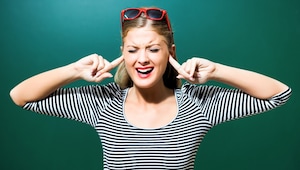
Stop posting about your shitty boyfriend (unless you’re gonna dump him)
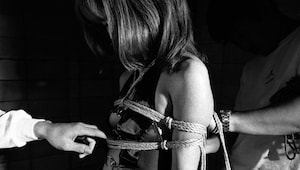
15 BDSM movies that aren’t just ‘Fifty Shades of Grey’
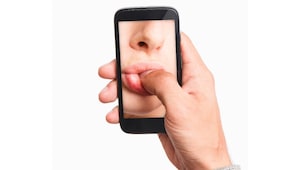
15 FaceTime sex positions to level up your virtual connection
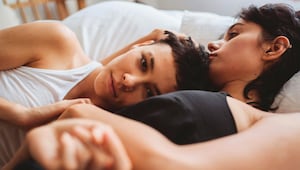
The four everyday habits quietly damaging your relationship—and expert tips on how to break them
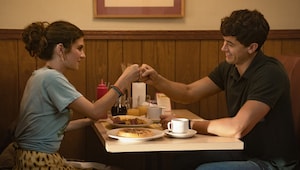
Dating with deadline—inside the 'sunset clause' dating trend

Why being frugal is the new sexy in relationships
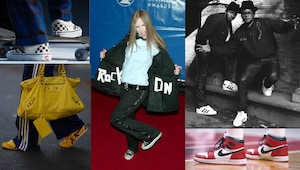
From courts to catwalks—the wild backstories of the world’s most iconic sneakers
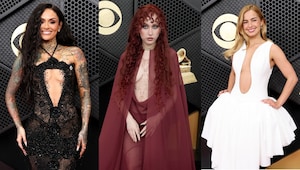
“All eyes on the midriff” should have been the only instruction given at the 2026 Grammy’s

Sip, flirt, repeat: Inside New Delhi’s most discreetly delicious cocktail bar
